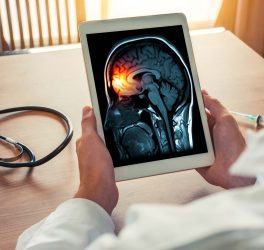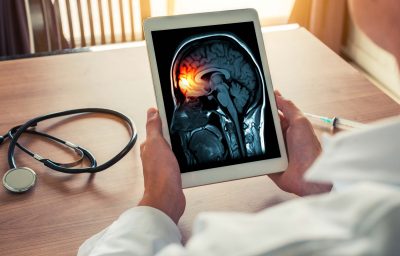
Improper removal of faulty brain cells during neurodevelopment may cause lifelong behavioral issues, new research from the University of Virginia School of Medicine suggests.
The finding also could have important implications for a wide range of neurodegenerative diseases, such as Alzheimer’s and Parkinson’s diseases.
UVA neuroscientists have discovered that an unexpected form of cellular cleanup takes place in developing brains. If this process goes wrong – happening too little or too much – it can cause permanent changes in the brain’s wiring. In lab mice, this results in anxiety-like behavior, and it may play a role in neurological conditions such as autism in humans.
“You don’t want [brain] cells to have genomic compromises. You don’t want damaged DNA. So, this would be a normal mechanism to expel those cells from being incorporated into the central nervous system,” researcher Catherine R. Lammert explained. “When the damage isn’t recognized, the cells that have DNA damage live on in the [central nervous system] and can be seen by accumulation of DNA damage in the brain.”
“Neurodevelopment is a very complicated process,” said Lammert, a graduate student whose specialized skills were instrumental in the discovery. “This form of cell death actually plays a role in removing unwanted cells from the brain to establish a healthy [central nervous system] with the correct connections and the right number of cells.”
More than half the neurons created during brain development end up dying, so proper cleanup is essential, noted Lukens, of UVA’s Department of Neuroscience. “Too much or too little is thought to underlie everything from autism to intellectual disability – any type of neurodevelopmental disorder,” he said.
The discovery came about somewhat serendipitously, the result of an observation of the behavior of lab mice while the researchers were investigating traumatic brain injury. But following that unexpected lead has given scientists a better understanding of brain development, and that understanding may one day yield new treatments for neurological diseases.








